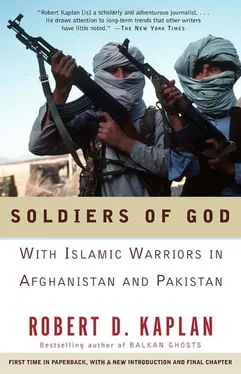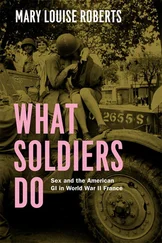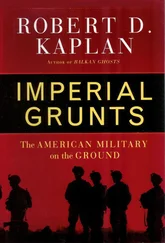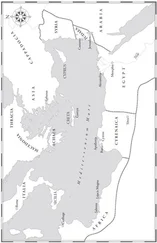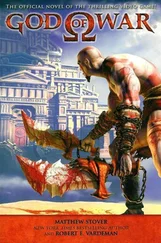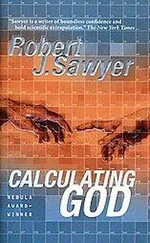President Bill Clinton’s visit to Pakistan in March was not a public-relations success. Clinton, who was opposed to the military takeover, refused to shake hands with Musharraf for the television cameras. A day later Pakistanis saw Clinton, on television in Geneva, clasping the hands of the Syrian dictator Hafez al-Assad… whose regime, they knew, was far more repressive than that of any Pakistani military ruler since the founding of their state.
Musharraf is characterized in the West as a dictator who supports fundamentalist terrorists in Afghanistan and Kashmir and who is not moving fast enough to restore democracy. The truth is somewhat different. Musharraf, one of the last British-style aristocratic officers in the Pakistani army, is a man in the middle. The West demands that he stop supporting Islamic militants; his fellow generals, who carried out the coup in his name, are Islamic hardliners, capable of staging another coup if Musharraf puts too much distance between himself and the Taliban and the Muslim fighters in Kashmir. Moreover, some analysts in Islamabad worry that Musharraf might be moving too fast on too many fronts in his drive to reform Pakistan. In addition to promoting human rights, a free press, and local elections that threaten tribal mafias, he has challenged the smugglers throughout Baluchistan and the Northwest Frontier. As the gun battle I saw in Quetta demonstrated, Musharraf has struck hard against various ethnic nationalists and criminal groups. Unlike previous anti-corruption drives in Pakistan’s history, Musharrafs has indiscriminately targeted officials from all political parties and ethnic groups. And Musharraf has not relied on fundamentalist organizations like the Maududiin fluenced Jama’at-I-Islami (“Islamic Society”) for support, as Zia did. He has in fact alienated many vested interests, who have the will and the means to fight back… which is why, despite his liberal instincts, Musharraf may yet declare martial law.
Even if Musharrafs reformist plans succeed, one crucial element will remain: the military itself, which with its own factories, agribusinesses, road-construction firms, schools, hotels, and so on, constitutes a parallel state. No less than the civilian sector, the military is mired in corruption, and yet it is exempt from investigations by the courts. Tanvir Ahmad Khan, a former Foreign Secretary, told me that Pakistan’s only hope may be “a genuine hybrid system in which the army accepts responsibility for poverty and illiteracy in return for limited political power.” A successful hybrid system, he went on, would “democratize the army.” Rifaat Hussain, who chairs the Department of Defense and Strategic Studies at Quaid-Azam University in Islamabad, agrees: “I will not rule out a formal constitution on the Turkish model in order to create a national-security council and give the army constitutional privileges. We must find a way to legally stabilize civil-military relations.”
Pakistani politics have been a circular tale of passion in which one group of people imprisons or persecutes another, only to be imprisoned or persecuted itself once political fortunes change. Consider the story of Farouk Adam Khan.
In 1973, as a thirty-three-year-old army major, Adam led a coup against the elected Prime Minister, Zulfikar Ali Bhutto. The coup failed when one of the officers deeply involved lost his nerve and reported the details to the Prime Minister himself. Adam spent five years in prison, including, as he puts it, “thirteen months, two days, and six hours” at Attock Fort, fifty miles west of Islamabad, overlooking the Indus River, which was built by the Moguls in 1581 to guard the Afghan frontier. Adam went on to become a lawyer in his native Peshawar, where I met him in 1987. He is now the prosecutor-general of Musharraf s National Accountability Bureau. I saw him again in May, back at Attock Fort, where he was to arraign the former Prime Minister Nawaz Sharif on corruption charges.
After the proceedings in a whitewashed barracks hall… where fans whirred overhead and flies hovered and the unfortunate Sharif pleaded for better food… Adam pointed out the room where he had read The Federalist Papers and John Stuart Mill’s On Liberty in the semi-darkness of solitary confinement. “Those books confirmed my judgment that I was absolutely justified to attempt a coup,” he told me. “Every single ingredient that the authors of those books say is required for a civil society… education, a moral code, a sense of nationhood: you name it, we haven’t got it! Just look at our history. It sounds authoritarian, but we need someone who will not compromise in order to build a state. It is not a matter of democracy but of willpower.”
Adam’s interpretation of Mill and the Founding Fathers is certainly questionable. Yet fifty-three years after independence only about one percent of Pakistanis pay any taxes at all: one can empathize with his yearning for a functioning state. But I fear that Adam’s dreams may be impossible to realize, under either democracy or the semi-authoritarian conditions he recommends. Musharraf may be better respected by his countrymen than any other Pakistani leader in decades, but there is just too much poverty and ignorance, too many ethnic and sectarian rivalries, too many pan-Islamic influences, too many weapons filtering back from Afghanistan, and too many tribal and smugglers’ mafias able to challenge the military. As the Shia leader in Karachi told me, Musharraf may simply be a good man who arrived too late. Atatürk had decades to build Turkey… time Musharraf doesn’t have.
From the mottled-ocher battlements of Attock Fort, I gazed down on the Indus River, which marks the geographic divide between the Subcontinent and the marchlands of Central Asia. Mogul, Sikh, and British conquerors, and then the new state of Pakistan, had all rearranged borders, but the river still expressed a certain inexorable logic… evinced by the resentment that the Pashtoons of the Northwest Frontier on one bank felt for the more settled Punjabis on the other. Here, at this broad and majestic crossing, is where India truly begins, I thought. A forty-five-minute drive east of Attock lay Taxila, where amid the enervating heat and dust are the ruins of Persian, Greek, Buddhist, and ancient Indian civilizations: a lesson in history’s transmutations, with one culture blending with and overturning another. If there is any common thread, it is that India has always been invaded from the northwest, from the direction of Afghanistan and Central Asia… by Muslim hordes like the Moguls, the builders of the Taj Mahal. And given the turbulence within Islam itself, it is hard to believe that this region has seen the last of its transformations… or that Pakistan constitutes history’s last word in this unstable zone between mountains and plains.
At the end of my visit to Pakistan, I sat with a group of journalists trying to fathom why Nawaz Sharif, when still Prime Minister, had reportedly turned down an offer of several billion dollars in aid from the United States in return for agreeing not to test nuclear weapons. A Pakistani friend supplied the simple answer: “India had tested them, so we had to. It would not have mattered who was Prime Minister or what America offered. We have never defined ourselves in our own right… only in relation to India. That is our tragedy.”
The feebler the state becomes, the more that nuclear weapons are needed to prove otherwise. At major intersections in the main cities of Pakistan are fiberglass monuments to a rock that was severed in 1998 by underground nuclear tests in the Baluchistan desert… celebrating the achievement of nuclear power. Do not expect Pakistan to pass quietly from history.
Читать дальше
